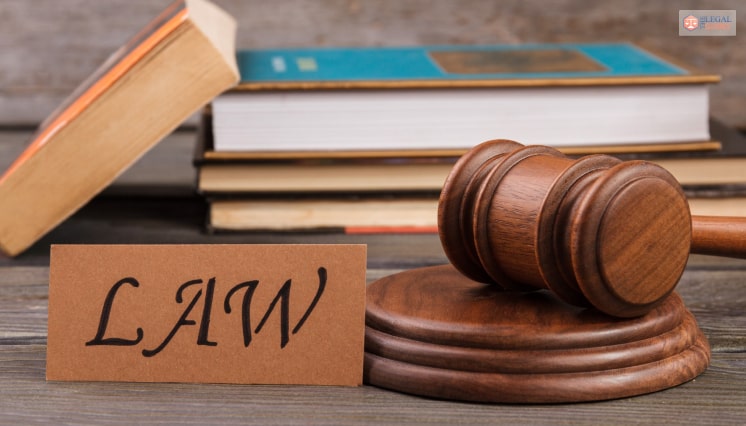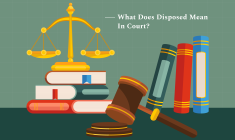British Canadian Common Law is a branch of the broader common law system that originated in England. Usually, most of the countries that have been British colonies either follow common law or have elements inspired by it. BC Common Law, or Common Law, has been adopted and adapted in many countries, including Canada.
What is Common Law in BC?

In simple terms, BC common law is a body of law based on court decisions and precedents rather than on written laws or statutes.
What Is The Legal Side Of It?
BC common law relies on the principle of “stare decisis,” which means that previous decisions made by higher courts serve as binding precedents for future cases. This creates a consistent and predictable legal framework that ensures fairness and justice.
The common law system in British Columbia, as in other Canadian provinces, has evolved over centuries, drawing upon English legal traditions. However, it has also been influenced by local customs, statutes, and constitutional documents specific to Canada.
Common Law BC- Key Features of BC Common Law

Let us look at some of the features of Common Law in British Canada.
Previous Judgements/ Court Rulings
One of the defining features of BC common law is its reliance on judicial decisions as a primary source of law. Courts in British Columbia often refer to past cases with similar facts and issues to guide their judgments.
Flexibility
Common law allows flexibility and adaptability in the system. Judges have the authority to interpret and apply the law in a manner that reflects changing societal values and circumstances.
Equity
BC common law is often complemented by principles of equity, which enable courts to address situations where the strict application of the law may lead to injustice.
No-Fault Liability
Another hallmark of common law is its “no-fault” liability system. This means that in civil cases, liability may be imposed on a party even without proving intent or negligence, depending on the circumstances.
Unwritten Law
Unlike civil law systems, common law is based on unwritten laws. While statutes and regulations play a role in BC common law, court decisions are central to developing and interpreting legal principles.
Jury Trials
In some cases, BC common law allows for jury trials, where a group of ordinary citizens is responsible for deciding the facts of the case.
Case-by-Case Basis
Decisions in BC common law are made on a case-by-case basis. This means that each case is considered individually, and the outcome is determined based on its unique set of facts and legal principles.
Legal Professionals
Common law relies heavily on legal professionals, such as lawyers, judges, and legal scholars, to correctly interpret and apply the law.
What Are The Basic Laws Under Under BC Common Law?

Under the Common Law of British Canada, various laws regulate and protect different aspects of the life of Canadians. Here are some of the top laws under BC Common Law.
Criminal Code
The Criminal Code outlines offenses and penalties for crimes such as theft, assault, and fraud. It ensures that individuals who break the law face the consequences outlined in the Act.
Family Law Act
This law deals with family matters, including marriage, divorce, child custody, and support. It aims to protect the rights and interests of family members and ensure fair resolutions of disputes.
Human Rights Code
The Human Rights Code prohibits discrimination based on factors such as race, religion, gender, and disability. It ensures equal treatment and opportunities for everyone in British Columbia.
Employment Standards Act
This law sets minimum standards for employees, including working hours, wages, and vacation entitlements. It aims to protect workers’ rights and ensure fair treatment in the workplace.
Residential Tenancy Act
The Residential Tenancy Act governs the rights and responsibilities of landlords and tenants in rental housing. It outlines rules for rent increases, evictions, and dispute resolution.
Wills, Estates, and Succession Act
This law deals with matters related to wills, estate planning, and inheritance. It ensures that a person’s assets are distributed according to their wishes after their passing.
Motor Vehicle Act
The Motor Vehicle Act sets rules and regulations for driving on BC roads. It includes provisions for driver licensing, vehicle registration, and road safety.
Privacy Act
The Privacy Act protects individuals’ personal information from unauthorized use and disclosure. It ensures that organizations handle personal data responsibly and securely.
Health Care Consent Act
This law establishes rules for making medical decisions on behalf of incapable adults. It ensures that their rights and well-being are protected when they are unable to make their own healthcare choices.
Employment Equity Act
The Employment Equity Act promotes diversity and inclusion in the workplace. It aims to remove barriers and create equal opportunities for underrepresented groups.
What Is BC Common Law Marriage?

In British Columbia, a common law marriage is when two people live together in a committed relationship without getting legally married. Despite not having a formal marriage ceremony, the law recognizes their relationship as a marriage after they have lived together for a certain period of time. This type of relationship is also known as a “common-law partnership” or “cohabitation.”
In British Columbia, for a common law marriage to be recognized, the couple must live together in a marriage-like relationship continuously for at least two years. However, this period can be shorter if they have a child together or if one partner makes significant contributions to the other’s property or financial well-being.
What Type Of Legal Recognition Does A Couple Get?
Once the two-year requirement is met, the law considers the couple legally married for many purposes. This means they have the same rights and obligations as formally married couples, even though they did not go through a wedding ceremony.
What Are The Property Rights Shared By A Couple?
In a common law marriage, both partners have rights to the property acquired during their time together. If the relationship ends, they may be entitled to an equal division of assets, similar to a married couple going through a divorce.
What Are The Terms Of Child Custody and Support?
Common law partners have the same rights and responsibilities as married couples when it comes to child custody and support. They must provide financial support for their children, and custody arrangements are decided based on the best interests of the child.
What Are The Terms Of Separation?
If a common law relationship ends, partners may need to deal with issues related to property division and support, just like in a divorce. They may seek legal help to resolve these matters if they cannot reach an agreement.
What Are The Legal Sides To It?
Couples in a common-law marriage can enter into legal agreements, such as cohabitation agreements or separation agreements, to clarify their rights and obligations. These agreements can help avoid disputes in the future.
Living together for a certain period does not create a common-law marriage by default. The couple must meet the criteria set by the law to be considered legally married.
What Are The Couple’s Rights and Benefits?
Being in a common-law marriage can grant partners certain legal rights and benefits, such as spousal support, access to certain benefits and pensions, and the ability to make important medical decisions on each other’s behalf.
BC Common Law Marriage And The LGBTQ+ Community

LGBTQ couples in British Columbia also qualify under BC common law. They should, however, see to it that the following criteria are met.
Same Duration Requirement
LGBTQ couples must live together in a marriage-like relationship continuously for at least two years to be considered common law.
Legal Recognition
Once the two-year requirement is met, the law treats LGBTQ couples as legally married, granting them the same rights and obligations as heterosexual couples in a common-law relationship.
Property Rights
LGBTQ partners have equal rights to property acquired during their time together, and they may be entitled to an equal division of assets if the relationship ends.
Child Custody and Support
LGBTQ couples have the same rights and responsibilities regarding child custody and support as heterosexual couples in a common-law marriage.
Thus this only goes on to show that common law in British Canada is quite ahead of its time compared to its counterparts in other countries.
We Hope You Found This Article Helpful.
Read More:
















